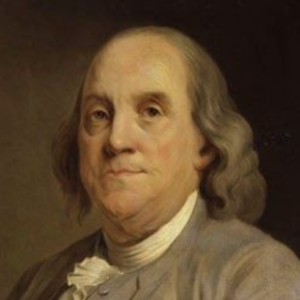
|
In January I posted an article entitled, Because I Said I Would. It was written to emphasize the importance of keeping our word. It matters not whether it is an event involving your family (attending the kids’ evening soccer practice) or executing the plan and delivering on a promise made to the team at work or a customer; our word is our sacred honor and failing to keep it can cause irreparable damage to reputations and relationships. A few weeks ago I posted “Bookends”, an article that gives consideration to how we begin and end our day. Within that post I considered the importance of journaling as a means to bring clarity to one’s day. This week I want to marry these ideas.
Let’s begin with a dose of reality, leaders have many responsibilities often requiring them to multi-task while simultaneously monitoring progress on a multitude of goals (both their own and those they are responsible for). Research reveals that employees often bring their own worries and to work and expect their leaders to manage those too. Additionally the same research suggests that when employees are struggling with emotional issues, they approach their leader more often than their co-worker. That’s a good thing, however it comes with a price, as survey data reveals many leaders to be exhausted and unengaged at work. The resultant effect is often a failure to execute a plan, meet a deadline, or fail on a commitment; none of which is acceptable. So what can serve as an intervention that serves to enhance leaders engagement at work and facilitate their ability to follow through and deliver (i.e keep their word)? Bookend Journaling!
Teresa Amabile of the Harvard Business School identifies journaling as one of our best-kept productivity secrets. It is one of the best strategies available for learning about yourself and improving your professional performance over time. Additionally, journaling becomes a vehicle for recording those small victories often lost to the memory that could serve as powerful motivators at a later point in time. The value of “Bookend Journaling” is partially illustrated in a jointly authored post, How Self-Reflection Can Help Leaders Stay Motivated appearing in September’s Harvard Business Review. The authors (three business school professors from the Univ. of FL and the Univ. of MD) draw this intervention from positive psychology research as a means to help leaders stay engaged. That research suggests that a leaders’ sense of self is closely tied to their leadership role, and leaders care about being successful in their role I’m adding a component that will serve to enhance personal accountability. The intervention is simple; journaling that includes two components:
-
- Morning thoughts and planned daily actions
- Evening accountability reflections
AM Journaling Session (Talking the Talk)
- Identify three things you like about yourself and which serve to help make you a good leader: (The expectation being that when you reflect positively on your skills you feel more engaged and excited at the prospects of the day, thus reversing energy depletion and enhancing engagement)
- Examples:
- I am a good leader because I put the needs of others before my own
- I am a good leader because I actively listen to others
- I am a good leader because I will take a stand in the face of injustice.
- Examples:
- Identify three tasks, activities, etc. that you will complete today that are part of a commitment you have made regarding the delivery of a service or execution of a plan. (Identifying the specific actions you will take today becomes a personal commitment for which you will hold yourself accountable and which, in turn, enhances you making good on your word)
- Examples:
- Schedule and lock-in training needed to meet rollout dates associated with Project Y.
- Complete review of Davidson Proposal, prepare brief, and email to marketing directors no later than end of day.
- Leave office by 5:15 and attend kids’ Back to School Night this evening.
- Examples:
PM Journaling Session (Walking the Walk)
- Review your morning journal. You identified three things you liked about yourself and which serve to help make you a good leader. Now the rubber meets the road. What actions did you take today that demonstrated those qualities? Write the example followed by the action.
- Example: I am a good leader because I actively listen to others (I actively listened when Elizabeth expressed concerns relative to Project Y training protocols. I incorporated one of her ideas into the Project Y training plans)
- Now, review the three tasks, activities, etc. that you committed to completing today. Did you keep your word? If so, great! If not, what action will you take tomorrow to remedy it?
Writing lets us take our thoughts to words, and those words can then become the basis for our actions. There is no shortage of ideas associated with the benefits of journaling, or the best time of day to do it. In addition to enhancing our leadership skills, the research reveals clear physical and mental health benefits attributed to this practice. The key is finding what works for you. This week why not let your words help you Embrace Your Challenges.
